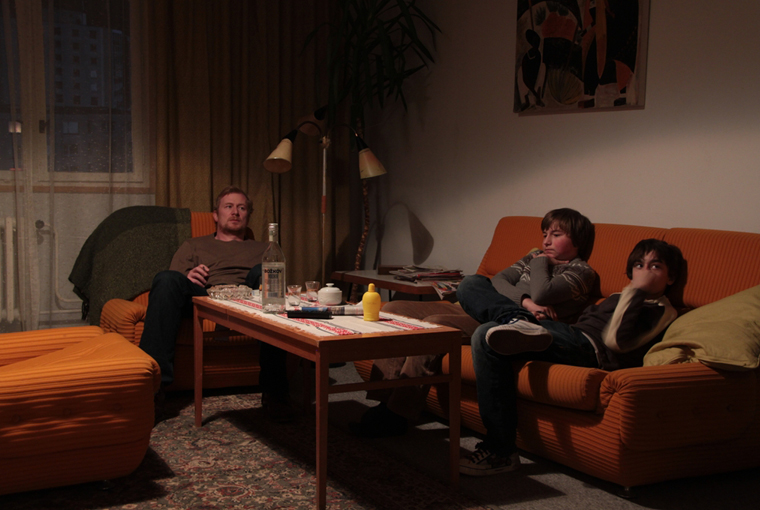Child's Play
Olmo Omerzu’s A Night Too Young (Prílis mladá noc, 2012)
Vol. 14 (February 2012) by Colette de Castro
The first feature film of young director Olmo Omerzu was completed as his final project for FAMU in Prague. The film has a distinctly film-school feel to it. Despite its vague plot, it’s difficult to tell that the film was made on a budget; the sequencing is flawless and the characters are well developed. Like an excellent school project, it really deserves top marks. Unfortunately, the whole film is lacking a general sense of purpose which would turn this well-made piece into a good film.
A Night Too Young is the story of an evening spent by several young people on New Year’s day. The celebratin takes place in a house in the mountains where, we hear, the kitchen burnt down, although no further explanation is given: indeed, the film has a feeling of having been cobbled together. Katerina (Natálie Řehořová) is walking towards a house with two men; one of them, David (Martin Pechlát), is a current lover, Stephan (Jiří Černý), the other, a friend of his. The feeling that something is going to happen that evening hangs in the air. Two young boys arrive in the snow. Katerina asks them to buy vodka and bring it to the house. The children are persuaded to stay, and during the night they experience very adult situations: swearing, vodka, marijuana, but, most of all, the ugly side of adult relationships, namely blackmail, cruelty, and betrayal. Soon we realize that the presence of the kids is less important to Omerzu than that of the adults — the children’s perspective is poorly developed. Now and then we have glimpses of interesting ideas: the boy who sits at the table cries silently with Katerina and her boyfriend fighiting and his friend being passed out from drinking too much vodka. A potentially interesting theme that is never developed is hinted at when when Stephan dreams that Katherina is passionately kissing one of the young boys. The audience might well wonder why the scene was included, because its connection with the rest of the story is never developed.
With a running time of just under an hour, this is a well-made film, easy and rleaxing to watch. Omerzu is definitely a director to look out for: here we have a glimpse of his potential. Once he shakes off the shackles of too-perfect film school direction he will no doubt make excellent films. But this one lacks plot and a sense of urgency. A young filmmaker does not have the weight of previous films behind him. When it comes down to it, the film is somewhat frustrating. Watching this film makes us question whether art needs a reason. Even abstract art has its own driving forces. But a film that reveals that it was made as coursework leaves us unsatisfied. Films don’t need to be political to be good, but most of the time art should try to be urgent – not necessarily fast, but focused.




Leave a Comment